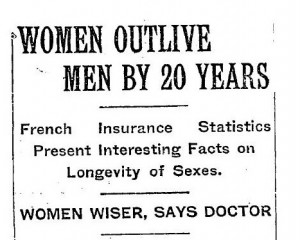 What a way to start off a New Year!
What a way to start off a New Year!
I feel naive.
I posed a question last November: “Do Professional Women Still Face Sexism?” I should have skipped the interrogatory and gone straight to the declarative, “Professional Women Still Face Sexism.” Every comment confirms what I feared, but wasn’t certain about.
I have no uncertainty now.
It seems the best we can conclude is that women are better off than they were 40 years ago, but sexism–overt and subtle–remains. “Better off than 40 years ago” doesn’t give me great comfort.
This disturbs me because nonprofit fundraising is predominantly female. Something like two-thirds of fundraisers are women. I don’t like my colleagues suffering. I’m sure the stories run much deeper, more hurtful and more dangerous than the disrespect reflected in your comments to my first post. I wonder if every woman recalls a serious incident while reading this. I’m sorry.
For a week, I’m disabling the requirement to provide an email address to post a comment. If you have a story you want to share in total anonymity, use a bogus name (so I and others have something to refer to) and tell your story.
Male sexism doesn’t stop with professional colleagues; it runs to donors. (It obviously runs into personal lives, too.) A comment from LinkedIn describes how a fundraiser has been ignored after expressing interest in making planned gifts to nonprofits where she is a donor. Her friends have suffered the same disregard. She says they have, “dropped hints, left messages, sent emails or boldly said” they want to include gifts in their estates. They’re ignored. I’m astounded.
I apologize for my viridity.
I’m not going to preach to men. If you’re over 12 and haven’t learned equality, nothing I say will teach you.
It’s all very sad.

